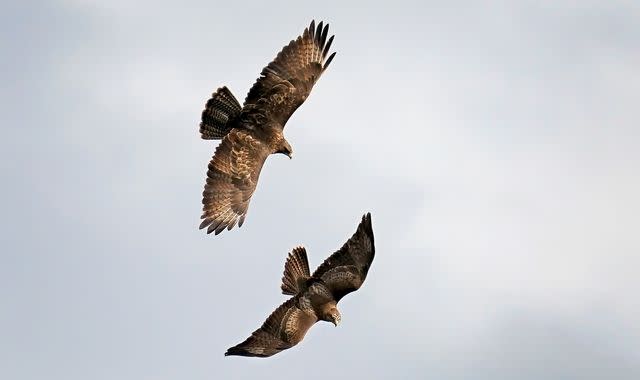Prosecution rate for wildlife and bird of prey crimes less than 4%, warns RSPB

British wildlife is being failed by the legal system, as people who commit crimes against birds of prey face a less than 4% prosecution rate, a conservation charity has warned.
The Royal Society for the Protection of Birds (RSPB) has warned birds of prey and other British wildlife face routine shooting, trapping or poisoning - putting their populations at risk.
The latest data from the RSPB has found 54 confirmed crimes involving birds of prey in 2022, but just two people were prosecuted.
The organisation has said a lack of prosecutions and convictions removes a key deterrent for would-be criminals and makes it more likely for people to become repeat offenders.
Read more:
How conservationists are racing to save UK's fastest declining bird species
Endangered hen harriers illegally killed on grouse moors
Wildlife crimes are not notifiable, meaning they are not officially recorded in national statistics.
Mark Thomas, head of investigations at the RSPB, wants to see this changed.
"We work with some really good police officers, but across the board wildlife crime isn't taken seriously enough," he said.
The warnings come after an RSPB Birdcrime report released in November 2023 found that bird species protected by law, such as buzzards, red kites and peregrine falcons, were being "relentlessly targeted" and illegally killed.
Monitoring those crimes are the RSPB investigations teams who covertly monitor wildlife crime on the ground.
Howard Jones, senior investigations officer at the RSPB said their teams see "routine" shooting, trapping and poisoning "in some places".
A National Police Chief's Council spokesperson said: "Wildlife crime blights our countryside and open spaces which should be havens for the many species which make it their home.
"Policing is committed to tackling all aspects of wildlife crime with specially trained officers who have the skills and expertise to ensure all reported incidents are investigated thoroughly.
"The public are vital additional eyes and ears in helping spot and report the signs of wildlife crime and we'd urge anyone who has any concerns to report it to their local police force on 101 or if a crime is in progress, call 999 immediately."


